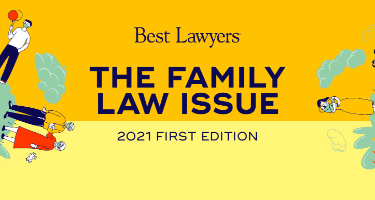The quiet space of the global pandemic is bringing forward a lot of time for reflection about the frailty of life. Perhaps this might also be a good time to think about something important alongside it: end of life matters and digital estate planning…no matter what age you are.
There are several resources that allow for folks to start their journey into expressing their final wishes for their end-of-life matters. Online estate-planning services like Final Roadmap and Aftervalt can help with organizing these documents and can be a great place to start. But given that legal matters vary by jurisdiction and focus, it is advisable to talk with a professional to ensure that documentation is ready, secure, and compliant in the event of an unexpected or untimely death. Most attorneys offer virtual appointments so planning doesn’t have to wait until pandemic restrictions lift.
Your Legal Document Lineup
Documentation is the ultimate goal of digital estate plan discussions, and much of this needs to be handled proactively throughout life. While creating an estate plan, there are three major documents to get solidified: a healthcare directive (pre-death), a durable power of attorney (also known as an advance directive for both pre-death and after death matters), and a will. Each of these documents plays an important role in estate planning. “They are your legal PPE right now…your pandemic preparedness estate” says attorney Kem Marks, founder of Just In Time Legal Solutions in Alabama.
A healthcare directive is useful in the events that lead up to death and is often used in conjunction with other documents in the estate-planning portfolio. Healthcare directives convey wishes to loved ones regarding medical matters and can communicate specific wishes in the event of health downfalls such as COVID-19 or other potentially lethal prognoses. “Without a healthcare [directive or] proxy, the decisions of your medical matters will be left to the [attending] medical staff.” Marks explains.
Secondly, a power of attorney form is useful for addressing healthcare wishes and can be invoked while you are alive, but it does considerably more than that. It assigns a designated person to make choices on your behalf in the event that you are not able to or prefer not to make them yourself. A power of attorney is especially important when it comes to management of business items such as safety deposit boxes, assets, and other commodities that might need to be accessed, released, or otherwise designated.
The third, and debatably “the most important document, is the will.” says Peter Mott, a trusts and estates attorney in Connecticut. Wills come into play after someone dies, and they contain designations for both your property and digital assets. “It is not a single document.” Marks clarifies. The complexity of a will can and often does vary. “It is the document that is the legacy of [an individual’s] personal power,” he explains. As such, the wording on it can be critical.
The approach to writing a will can involve fairly informal language or very specific details. Someone can write something as simple as they’d like to leave their estate to their daughter. Alternatively, some choose to be much more specific—like detailing they’d like to leave their estate to their 4-year-old daughter Anita, their partner Aldo, their niece Tricia—with finite language regarding designees and assets.
“Many wills are set up with specific values. Pursue the most elastic ones for their current circumstances,” cautions Marks. “When a will might be written originally, a client might have a young child but there might not be several children at the time.” A client can choose to add a line that leaves their estate to the then-known child with the addition and any other minor children I might have at the time of my death. This slight note can boost the document's reach.
In more intensive estate-planning matters, a fourth document comes into a play: the trust. “Trusts are not part of a basic estate plan,” Marks says. Trusts are more specialized estate plans that are for people with major assets and complex matters. “These are for people with situations like owning houses in different states and celebrities.” Marks says. While they are not necessary for most individuals, you should consult a legal professional and ask them if you are unsure.
The Devil Is in the (Everyday) Details
All of these documents are important when it comes to the formal estate-planning process, but you should also pay close attention to signatures and contracts that come up in the everyday course of your lifetime. Failure to do so could have catastrophic results as some contracts can even override your end-of-life documentation. Things like beneficiaries from deeds, joint bank accounts, and life insurance policies cannot be amended without getting changes in before death occurs. They often require specific permissions and layers of requirements to make changes. Removals can sometimes require multiple parties to sign off and can even result in escalation to litigation and court orders.
For instance, if someone forgets to take off their first spouse on a life insurance policy and then later remarries but doesn’t change the policy to have the first spouse removed, the first spouse will legally be entitled to the life insurance benefits upon the death.
Some states also have contracts which include a “right of survivorship” in the deeds of their homes. This can by default designate a home to go to whoever doesn’t pass first. “It can even override the will!” Marks cautions.
Keep Time—and a Lawyer—on Your Side
Ultimately, estate planning can be a very complex and layered affair. With all the unpredictability caused by the COVID-19 pandemic, now is the best time to start those conversations. The best step forward is a proactive one.
A legal professional can help guide you go through and make the process a straightforward and fruitful endeavor. You and your loved ones deserve to have things in order; consider making a call and getting things in place. You never know when you might need it.
Jennifer Stavros is a journalist based in Los Angeles who writes about politics, culture, relationships, and the often-quiet assorted nuances in between. She has been published on a multitude of major outlets including Playboy, The Independent, Cosmopolitan, Bitch, Business Insider, Marie Claire, and more. She is also currently writing a book about the intersection of life, death, and poverty.
Editor's Note: This article was published in the 2021 Best Lawyers Family Law Issue. To read the full issue, you can find our digital edition right here.



























